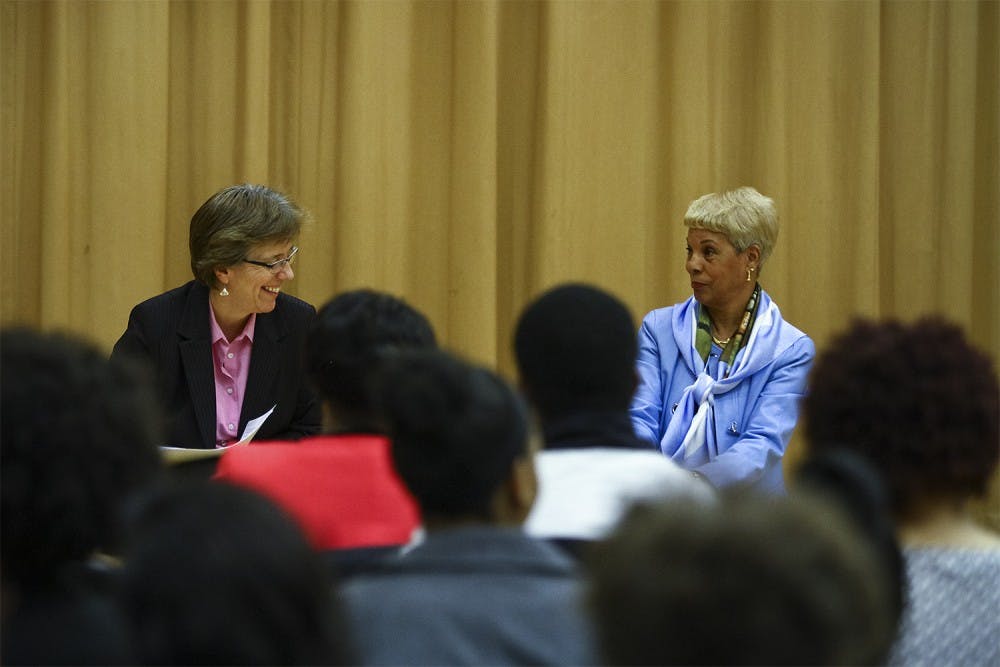“When I walked across a quad, three or four men looked out of the window and started yelling racial and sexual things,” she said.
The women shared how Martin Luther King Jr. left a legacy for them both personally and professionally.
Parker said she was caught by the police and sent to jail because of her participation in the civil rights movement, but just hearing what King was doing was encouraging.
“It gave us hope. It gave us guts,” Parker said.
Hubbard said she was targeted when she participated in a civil rights demonstration during her senior year of high school.
“One day a man came out from nowhere and just put his cigarette out in my hand,” she said. “It was a minor burn, but his intent was just really, really vicious.”
Reading King’s works made Hubbard want to be part of the change.
“So, the University changed. It has to start at sometime. It started with us. I’m so glad that we did that because you are here,” she said, referring to black students in the audience.
Carrboro Mayor Lydia Lavelle said she thought of justice, equality and fairness when she thought of King, and that’s what she wanted to work on throughout her life.
Lavelle teaches at N.C. Central University School of Law, which was founded in 1939 as a law school for black students because they could not be admitted to other law schools at that time. Today, the majority of the school’s student body is black.
To get the day's news and headlines in your inbox each morning, sign up for our email newsletters.
“Certainly, the law school carries on the legacy of Martin Luther King in that sense, and I would like to be part of that,” Lavelle said.
Junior Briana Echols said she found the panel both encouraging and inspiring.
“It was definitely very touching — the stories from all the ladies. It resonates with me of how far we had come,” said Echols, who is black.
“We are still fighting for civil rights for minorities, and the situations they faced are still parallel to ours.”
university@dailytarheel.com




